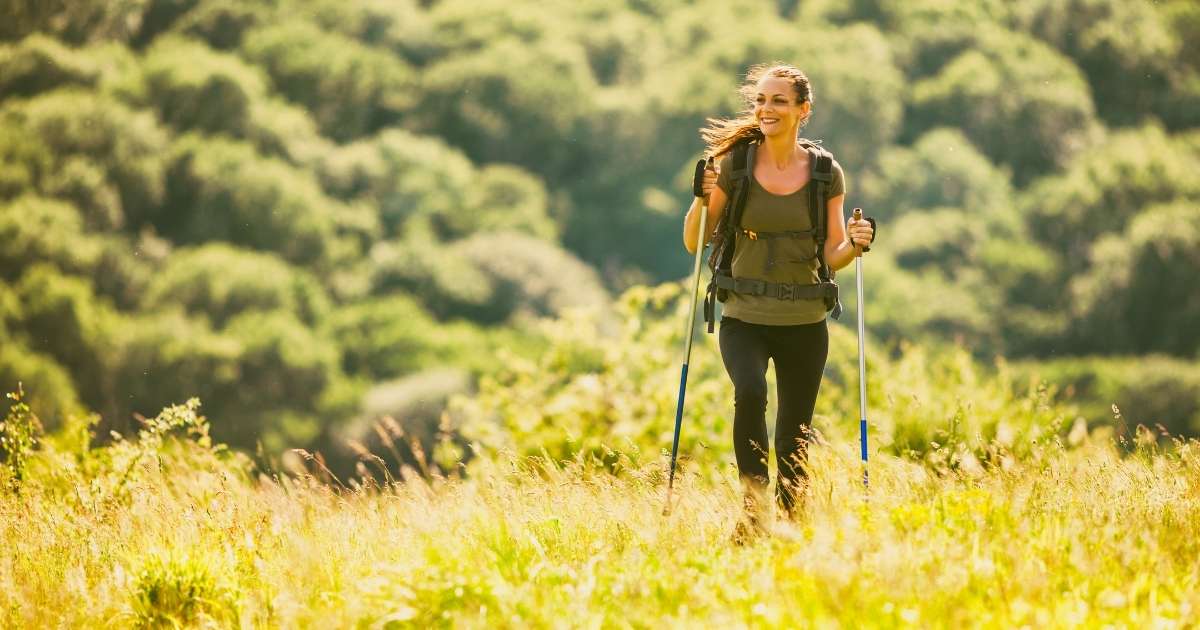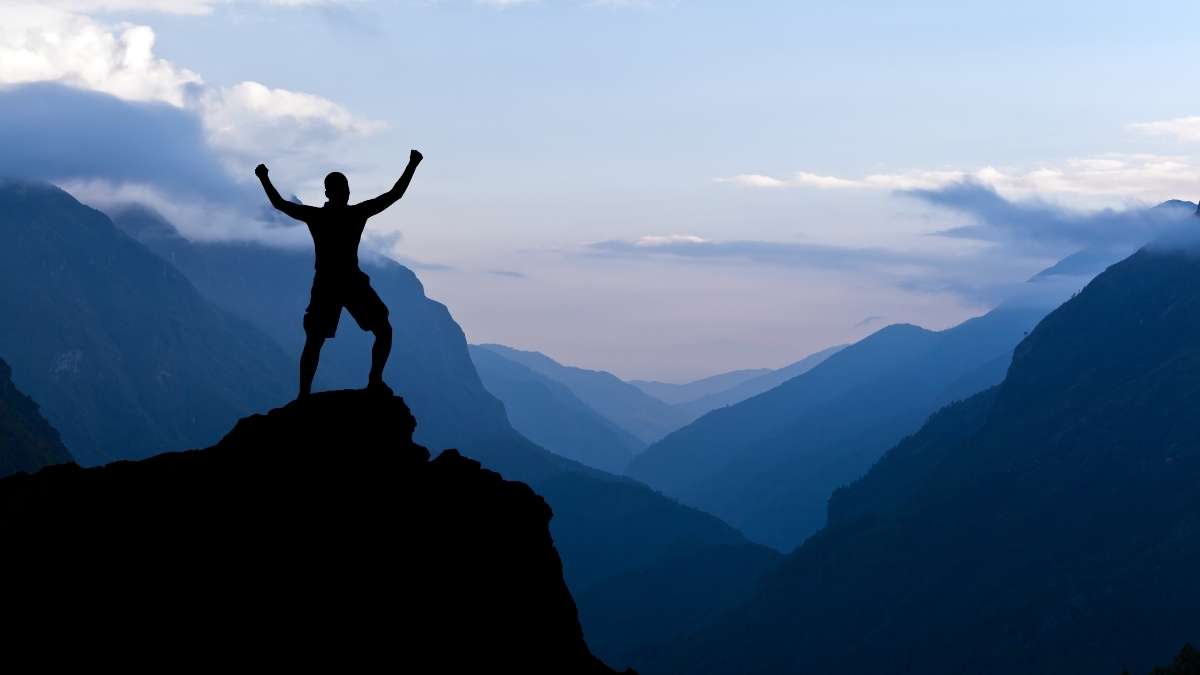Want to be more resilient? Take a hike – literally! Doing challenging hikes on a regular basis gives you the skills that you can apply to the challenges in your day-to-day life. Here’s how:
One Step at a Time
On one particularly challenging hike, I kept sinking into thigh-deep snow on a steep slope. When I looked up, all I saw was a tree-covered hill of more deep snow. I couldn’t see the peak, nor did I have any idea how long it will take me to reach it, the mountain was too steep. Determined to keep going, I took another step and another, each time sinking up to my thigh, my spirits sinking with it. So how did I get through it? One step at a time. I didn’t focus on how many steps it was going to take or how long, just the next step, then the one after that. When you’re knee-deep in snow, you’re present. You’re not thinking about what to have for dinner, or that conversation with your boss, the only thing matters is the next step, then the one after that.
The one step at a time approach is simple but effective whether you’re in the middle of a seemingly never-ending pandemic, or a job you hate with no obvious way out. You take one step, no matter how small, or how slow, to get to where you want to go. Moving forward is empowering and hiking is a literal metaphor for moving forward. It’s one of the reasons why I believe hiking can change your life.

The Importance of Taking a Breather
I normally take very few breaks when I hike, but when I hike a steep section or one where I keep sinking into the snow, making each step much more exerting, I’ll often take a short break every ten steps or so. I don’t berate myself. Instead, I listen to my body and when my lungs are on fire, it’s a clear signal that I need to take a short breather.
The same is true when you’re stressed for long periods of time. It’s draining and you’ll likely need more breaks than you would under usual circumstances. Our bodies are smart so when it’s trying to tell you that you’re exhausted, whether it’s physically or mentally, listen to it. Instead of pushing through when you just can’t take it anymore, be kind to yourself. Go for a walk, call a friend, book a weekend away in a treehouse, read a book about adventures that will inspire you, whatever your thing is.

Appreciate Things You’ve Taken for Granted
When a hike starts out easy, I rarely take the time to be grateful for it. It’s not until after I’ve done a steep section with my heart feeling like it’s pumping out of my chest and sweat dripping down into my eyes, that my heart is bursting with gratitude when the trail becomes easier again. That’s made me more aware to appreciate the small stuff in other areas of my life.
Going through something tough makes us appreciate things we might not otherwise notice. Let’s take the pandemic. Yes it’s been hard, and yes, it’s resulted in lots of terrible things, but you’re probably more grateful now for simple pleasures like meeting a friend at a cafe where the latte art always puts a smile on your face, when restaurants and cafes have been closed for months, or playing table tennis in a park after it’s been forbidden for months due to possible contamination issues.
You’ve Proved to Yourself That You Can Do Tough Stuff
I frequently challenge myself to do tough hikes, whether it means doing more elevation, distance or a combination of both, and even if I’m doing an easier hike, I’ll often challenge myself to do it faster. Why? Because the more tough hikes I do, the easier the next one is. Sure, conditioning plays a part in it, but so do confidence and perseverance. When I find myself struggling on a steep section in knee-deep snow with no end in sight, I think about a previous time where I was in a similar situation and kept on going until I reached the summit. It reminds me I did a similar hike before and I can do it again, which motivates me to keep on going.
Your hard hikes can help you face the challenges in your life off the mountain as well whether it be the loss of a job or balancing home-schooling your children while working from home. You can draw on the strength that you used to get through that difficult hike. Remember that time I was doing that hike where I thought my heart was going to burst through my chest but I stuck with it and made it to the summit? If I can do that, I can get through this too.
What did I do on that really hard hike? I kept moving, even if it was very s-l-o-w-l-y and I took breathers when I needed to. OK. That could work in this situation too. You’ve proved to yourself that you can do the hard stuff, and that proof gives you strength and the tools to get through whatever challenge you’re facing. You’ve got this!

Quitting is More Painful Than The Temporary Discomfort
When I’m on a difficult hike and my lungs are begging for me to turn around and it feels like I won’t reach the summit until after sundown, I tell myself: You can quit. Nobody would know (or care) that you quit. You could go home and have dinner with friends as normal people do on a Saturday night.
While nothing is stopping me from quitting, I know that I’ll regret it later. That the feeling of quitting would be much worse as I try to convince myself it was the “right” thing to do when in reality I’m just making excuses to avoid temporary discomfort. I also know that the feeling of shame will last much longer than the momentary burning in my lungs and the shaking in my legs. That motivates me to keep going and when I finally do reach the sunset, the real reward isn’t the views of the vast Alps, it’s the one that can’t be seen, the gift of knowing I persevered. I’ve avoided a negative feeling and added more proof that I can do the hard stuff to my toolkit.
This reminder is so powerful whenever you feel like quitting. Let’s say that you’re writing a book and really struggling with writer’s block over a particular section – hiking also improves your creativity. How will you feel if you quit and never publish that book? Maybe you haven’t told anyone you were writing it but you would know. If it would cause you shame, that’s a good sign you should stick with it and keep writing. Plus, the world won’t get to hear your important message that could help millions of people. Isn’t that worth going through some temporary discomfort?


